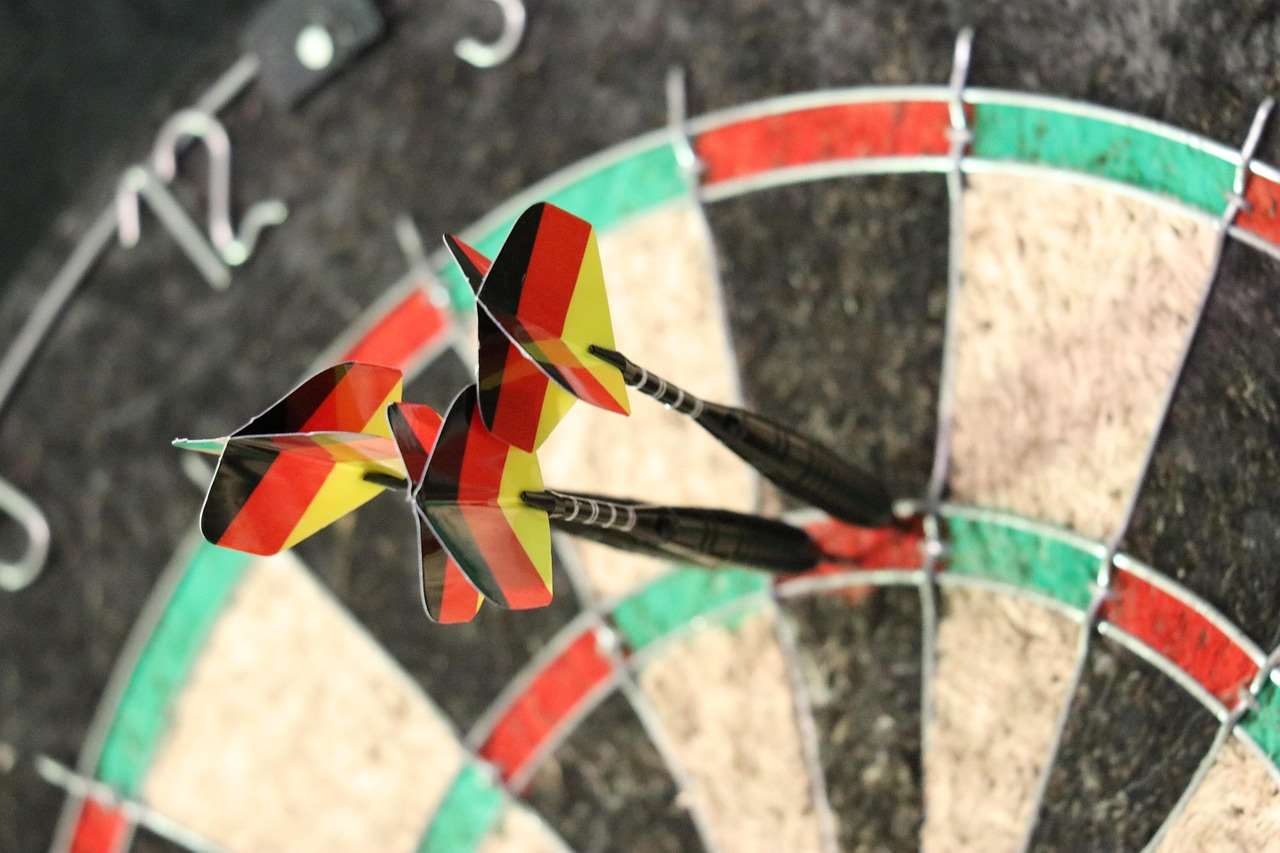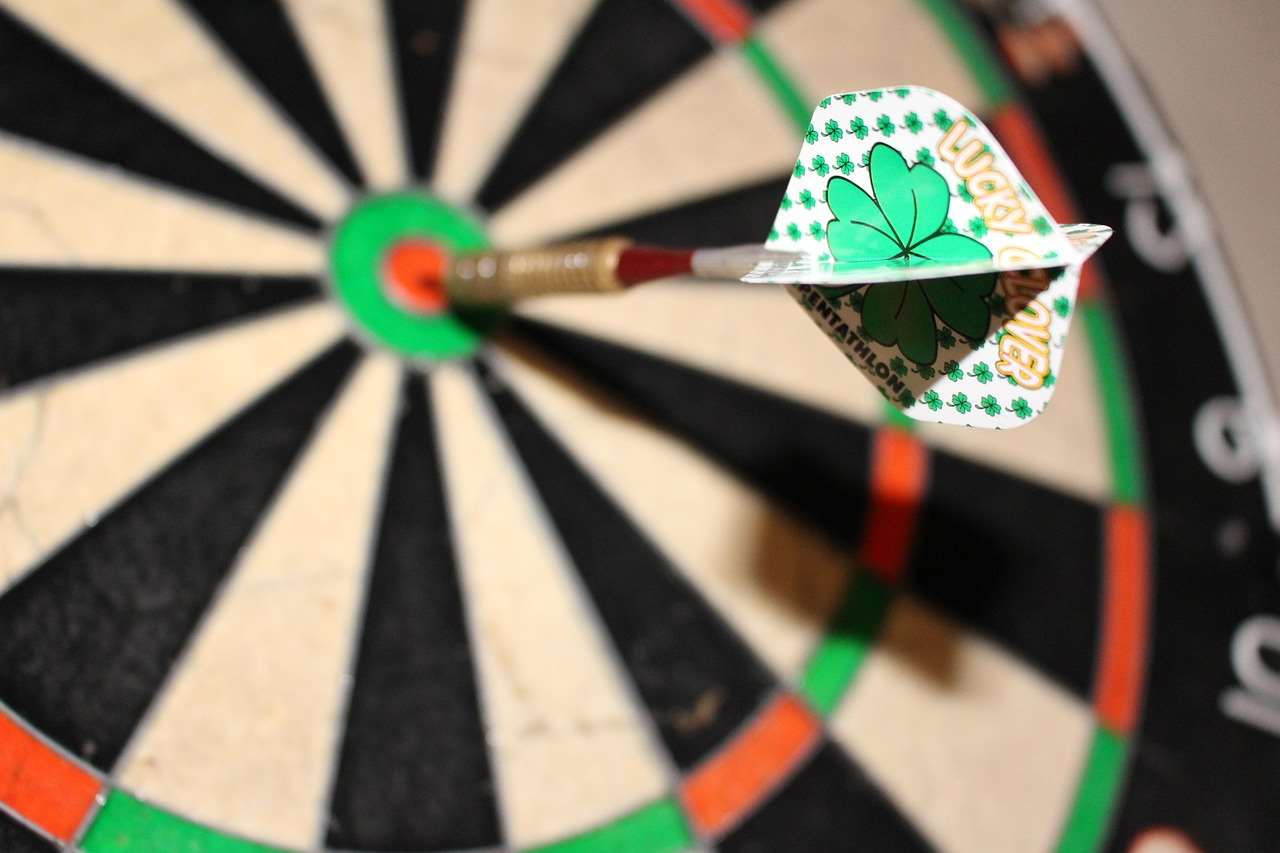Winning long darts matches isn’t just about skill; Fitness for long matches darts is crucial. A strong, healthy body ensures you maintain focus, accuracy, and stamina throughout even the most grueling matches. This article will explore how to optimize your fitness for peak performance, covering training regimens, nutrition, and mental strategies.
⚠️ Still Using Pen & Paper (or a Chalkboard)?! ⚠️
Step into the future! The Dart Counter App handles all the scoring, suggests checkouts, and tracks your stats automatically. It's easier than you think!
Try the Smart Dart Counter App FREE!Ready for an upgrade? Click above!
Beyond the obvious physical demands, we’ll delve into the importance of mental resilience and explore practical strategies to maintain your composure under pressure. We’ll also touch upon the role of nutrition in fueling your body and mind for optimal performance.
Fitness for Long Matches Darts: Building a Winning Foundation
Fitness for long matches darts isn’t about becoming a bodybuilder; it’s about building specific strengths that directly benefit your game. Think about the demands of a long match: hours of standing, repetitive arm movements, intense focus, and the pressure of competition. Your training should reflect these challenges.

A comprehensive program should incorporate several key areas: cardiovascular endurance (to prevent fatigue), strength training (for arm and core stability), and flexibility and mobility exercises (to reduce the risk of injury and improve throwing form). Focusing on these areas will dramatically improve your performance.
Cardiovascular Endurance
Long matches require stamina. Regular cardio, such as running, cycling, or swimming, will improve your cardiovascular fitness and help you maintain energy levels throughout a match. Aim for at least 30 minutes of moderate-intensity cardio most days of the week. This will significantly impact your ability to stay alert and focused during a long match.
Strength Training for Darts
While you don’t need massive muscles, targeted strength training is vital. Focus on exercises that strengthen your core (planks, Russian twists), shoulders (overhead press, lateral raises), and arms (bicep curls, tricep extensions). Strong core muscles improve your stability and balance, which are crucial for consistent throws. Remember to use weights appropriate for your fitness level and focus on controlled movements.
Consider incorporating exercises that mimic the throwing motion of darts, such as medicine ball throws, to improve your power and accuracy. This targeted approach will translate directly to improved performance in your matches.
Flexibility and Mobility
Tight muscles can restrict your range of motion, impacting your throwing technique and increasing your risk of injury. Include flexibility exercises like stretching and yoga in your routine. Regular stretching improves your posture and can improve your focus. Maintaining good posture is vital for consistent throwing form and preventing injury.

Remember, even small improvements in your flexibility and mobility can contribute to a significant increase in your overall performance. Prioritizing this area alongside your other fitness goals is crucial for consistent and injury-free gameplay.
Nutrition for Peak Performance
Proper nutrition is as important as physical training. Fuel your body with a balanced diet rich in fruits, vegetables, lean protein, and complex carbohydrates. Avoid processed foods, sugary drinks, and excessive caffeine, which can negatively impact your energy levels and focus. A well-balanced diet will directly contribute to your performance on the dartboard.
For more detailed guidance, check out our article on Nutrition for dart players.
Hydration is Key
Dehydration can lead to fatigue, muscle cramps, and decreased focus. Keep a water bottle handy during practice and matches and drink regularly. Staying hydrated helps maintain optimal body function during those long matches. The simple act of proper hydration can make a huge difference.
Mental Fitness for Long Matches
Fitness for long matches darts also extends to your mental game. Long matches test your mental endurance as much as your physical capabilities. Learn to manage pressure, stay focused, and maintain a positive attitude even when facing setbacks. Visualizing success and practicing mindfulness techniques can significantly improve your mental resilience.
Developing Mental Resilience
Practice deep breathing exercises to calm your nerves and regain focus. Use positive self-talk to encourage yourself and build confidence. The ability to maintain a calm demeanor is absolutely crucial in the face of pressure during long matches.

Consider exploring mental training techniques like mindfulness meditation to improve your concentration and emotional regulation. These practices can significantly enhance your mental game.
Cross Training for Enhanced Performance
Cross-training helps prevent overuse injuries and improves overall fitness. Incorporate activities like yoga, Pilates, swimming, or cycling to complement your dart-specific training. This approach helps maintain a diverse training regimen, preventing monotony and fostering overall health and well-being. Cross training for darts is an excellent way to improve your game overall.
Variety is Key
Avoid overtraining by incorporating rest days into your schedule. Rest allows your muscles to recover and prevents burnout. A well-balanced and varied training schedule is beneficial for preventing injuries and maintaining motivation.
For more tailored advice on cross training for various skill levels, explore our guides on Cross training for beginners darts and Cross training for recreational darts.
Rest and Recovery
Adequate sleep is essential for muscle recovery and optimal cognitive function. Aim for 7-9 hours of quality sleep each night. Prioritizing sleep allows your body to recover and strengthens your immune system, reducing your susceptibility to illnesses that can impact your performance.

Remember, recovery is as critical as training itself. Listen to your body, take rest days when needed, and avoid pushing yourself too hard, especially when you are starting your fitness journey. Consistent and responsible training is key to avoiding injury and maintaining progress.
Addressing Specific Fitness Challenges
Many dart players face specific physical challenges that can affect their game. Poor posture can lead to back pain and inconsistent throws; eye strain can cause fatigue and decreased accuracy; and hand and wrist pain can limit your ability to throw effectively. Addressing these is integral to your long-term success.
Posture Correction
Maintaining good posture while throwing is crucial. Practicing proper posture techniques, and seeking professional help if needed, can significantly improve your throw consistency and prevent injury. Correct posture is key to maintaining consistent throws throughout long matches.
Vision Training
Good vision is essential for accuracy. Consider vision training exercises to improve your depth perception and hand-eye coordination. For more information on this, refer to our article on Vision for depth perception.
Hand and Wrist Care
Warm up your hands and wrists before each practice session and match. Use appropriate stretches to maintain flexibility and prevent strain. Regular stretching and careful warm-ups will significantly reduce the risk of hand and wrist injuries.
The Importance of a Holistic Approach to Fitness
Ultimately, fitness for long matches darts is about creating a holistic approach to your well-being. It’s about optimizing your physical, mental, and nutritional health to perform at your peak. By integrating the advice provided in this article into your routine, you’ll be well-positioned to dominate those long, challenging matches.

Remember to consult with a healthcare professional or certified trainer before starting any new exercise or diet program. They can provide personalized recommendations based on your individual needs and health status.
To further support your journey towards peak dart performance, explore our comprehensive resource on Darts Fitness Health which offers additional insights and tips.
This holistic approach encompassing physical training, nutrition, mental fortitude, and recovery will ultimately translate into improved performance and a more enjoyable experience on the dartboard. Remember, it’s a marathon, not a sprint, and consistency is key.
Ready to elevate your game? Start implementing these strategies today and experience the difference in your performance on the oche!
Hi, I’m Dieter, and I created Dartcounter (Dartcounterapp.com). My motivation wasn’t being a darts expert – quite the opposite! When I first started playing, I loved the game but found keeping accurate scores and tracking stats difficult and distracting.
I figured I couldn’t be the only one struggling with this. So, I decided to build a solution: an easy-to-use application that everyone, no matter their experience level, could use to manage scoring effortlessly.
My goal for Dartcounter was simple: let the app handle the numbers – the scoring, the averages, the stats, even checkout suggestions – so players could focus purely on their throw and enjoying the game. It began as a way to solve my own beginner’s problem, and I’m thrilled it has grown into a helpful tool for the wider darts community.